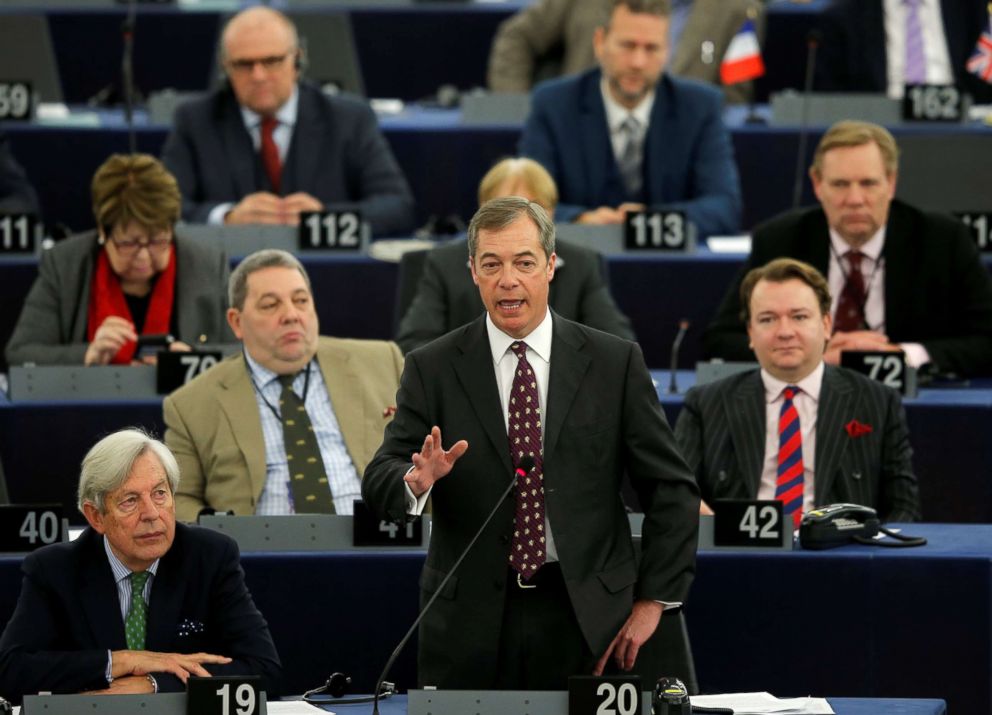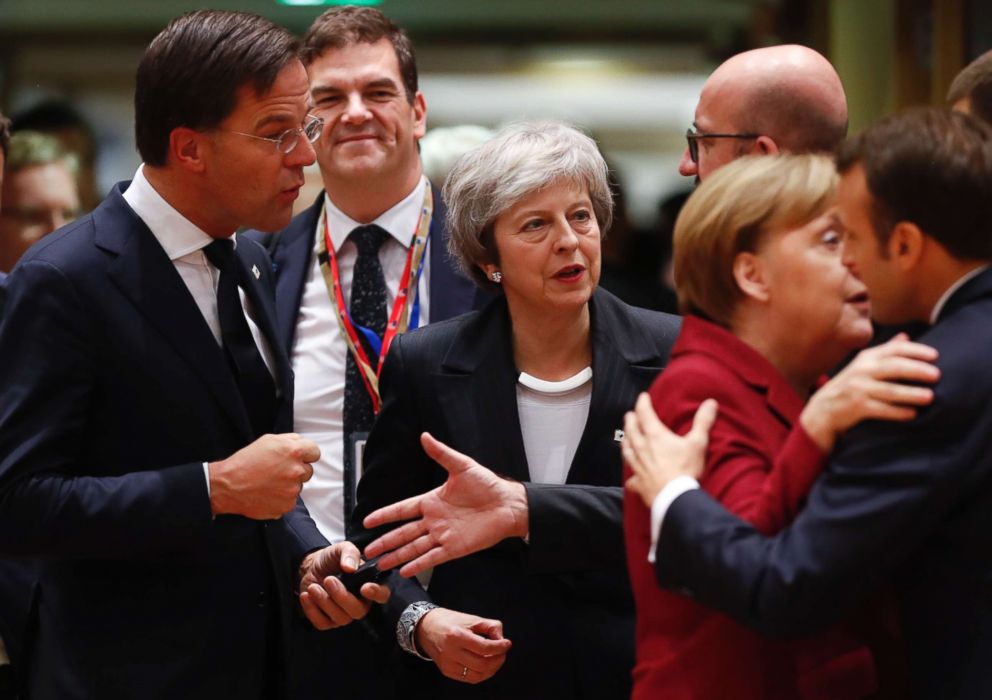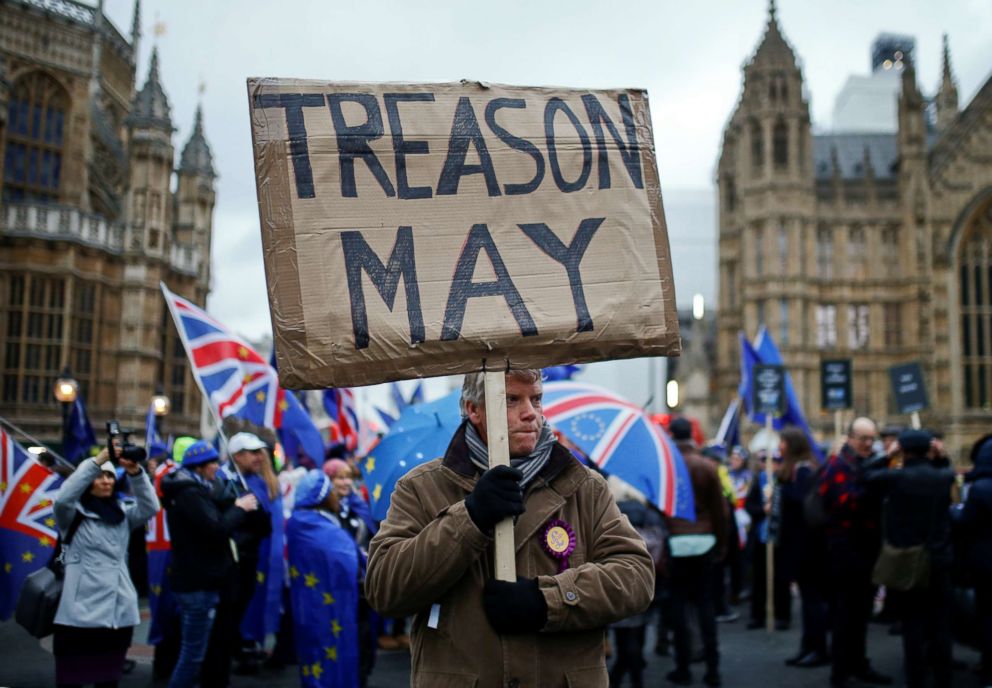Brexit crisis: What’s next after Theresa May's deal voted down yet again?
Theresa May remains in power, but the path to Brexit is still unclear.
LONDON -- British Prime Minister Theresa May remains in power for the time being, but her premiership is on a knife edge after she lost the crucial vote on her Brexit deal for the second time on Tuesday night.
The Brexit deal, which has received heavy criticism from all sides of British politics, was voted down by a margin of 149, with 242 in favor to 391 against. In the end, it was a resounding defeat for the prime minister, and with the deadline for leaving the European Union just weeks away on March 29, the future of Brexit is more uncertain than ever.
Welcome to the dizzying world of contemporary British politics. First, the basics.
The U.K. voted in June 2016 to leave the European Union by a majority of 52 to 48 percent. But the question on the ballot did not specify what relationship Britain would have with the European bloc if it left, and the last two years have been fraught with negotiations and politicking.

The deal May secured with the EU has now been voted down twice. In January, by the record historic losing margin of 432-202. The second time the margin of defeat was smaller, but with the majority against May's deal now at an eye-watering 149 MPs, it is clear that U.K. lawmakers will not let her deal through the U.K. Parliament -- no matter how many times she tries.
With the deadline to leave the EU looming ever closer, here’s what we can expect to happen next.
Deal defeated, but what happens now?
After the Brexit deal May proposed was rejected on Tuesday evening, there will be two further votes in the U.K. Parliament this week to determine the immediate path forward.
On Wednesday, March 13, lawmakers will get a chance to vote on the option of leaving the EU with "no deal." It is highly unlikely that this will pass, as politicians and business leaders alike have warned that a no-deal Brexit would have catastrophic effects on the British economy. Some people have even been stockpiling food and medicine in the event of no deal.
Then, if lawmakers vote against "no deal," there will be another vote on March 14 on whether to request a Brexit delay. The default position currently is that the U.K. will leave the EU without a deal on March 29, so it is highly likely the same lawmakers who voted against a "no deal" outcome will vote to request an extension.
Then, Prime Minister May will speak to EU leaders and request an extension to the Brexit process.
Delaying Brexit
If the U.K. seeks to delay the exit date and ask for more time, their request will have to be agreed on by all 27 EU Member States.
It is not yet clear how long this extension period would be, but Guy Verhostadt, the Brexit coordinator for the European Parliament, has said that it is "unthinkable" that the extension would go beyond the European elections in May.

If the EU agree to a short delay to Brexit, the prime minister has three main options:
1. Renegotiate the current deal and hold more votes. May could seek concessions from the EU on the controversial points of her current deal, such as on the Irish backstop. She tried this after the first vote in January and failed to secure major concessions from EU leaders.
Given the huge scale of defeats in both votes, it is unlikely this deal will find a way through -- though some experts believe that the U.K. Parliament's resistance will gradually weaken in the months ahead.
2. The prime minister could abandon her plans entirely and pursue a "Soft Brexit." This will satisfy the opposition Labour Party and "Remainers" in her own Conservative Party. Soft Brexit would mean the U.K. remains closely tied to the EU, staying in the customs union and remaining under key EU policies such as freedom of movement.
This scenario is more likely to get Parliament's approval, but May will be risking an irreparable divide with the "Hard Brexiteers" in her Conservative Party.
3. Wind down the clock and pursue "no deal." This would guarantee that Brexit will happen, though most lawmakers are staunchly opposed to this.
A second referendum?
Yes, you read correctly.

If the U.K. Parliament is unable to agree on Brexit and they face a "no deal" scenario, a second referendum is also possible. There is a growing campaign, supported by a number of influential MPs, to have a "People's Vote" on the final terms of any Brexit outcome.
The opposition Labour Party have tentatively said they would back a second referendum if May does not change course to a "softer" Brexit. Parliament would then proceed to deal with whatever the result is.
Like the prospect of no deal, the chances of this once far-fetched proposition are now increasing.
However, it is not just the future of Brexit that is uncertain. Prime Minister May has so far carried steadfastly on in the face of mounting opposition, but it seems at any moment she could be forced out of office by unsatisfied lawmakers, which would throw the country into further political chaos.
In truth, neither pundits nor politicians know what Brexit will actually look like -- or even if the prime minister will be in power this time next week.
The 2016 EU referendum may have asked the simplest of questions, but implementing the will of the people is proving a far more difficult task.




